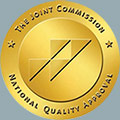Addiction, also known as substance use disorder (SUD), is a chronic brain disease, and is listed as such in the Diagnostic and Statistical Manual of Mental Disorders, Fifth Edition (DSM-5).
Substance use disorder is defined as a “complex condition in which there is uncontrolled use of substance despite harmful consequence.” Individuals that struggle with addiction will prioritize satisfying drug cravings above all else. This can lead to detrimental consequences affecting all areas of one’s life. The development of substance use disorder does not occur immediately, nor will recovering from addiction be achieved instantaneously. Data from 2022 presented by the National Center for Drug Abuse Statistics, indicate that addiction affects over 20 million Americans aged 12 and over.
Risk Factors
The precise reason behind why an individual develops an addiction remains unknown. There are, however, several risk factors that have been reported to increase one’s propensity for developing an addiction. According to the National Institute on Drug Abuse (NIH) these include environmental risk factors, genetics, drug of choice, method of use, and the age an individual started abusing drugs and/ or alcohol. Nevertheless, it is important to note that anyone can develop an addiction, regardless of social status, beliefs, or background.
Signs and Symptoms
Although there are various factors that will play a part in the specific behaviors and exact signs exhibited by an individual struggling with addiction, there are several general signs and symptoms associated with addiction. Some of the warning signs exhibited by an individual struggling with addiction and behavioral changes that may occur due to substance use disorder could include, but are not limited to, the following examples, provided by the American Psychiatric Association:
- Emotionally unstable
- Hyperactive
- Hostile
- Uncommunicative
- Uncooperative
- Depressed
- Agitated
- Anxious
- Avoids eye contact
- Increased need for privacy
- Irregular eating habits (eats excessive amounts or does not eat at all)
- Random laughing fits
- Disappears for extended periods of time
- Lacks coordination
- Financial difficulties
- Attempts to cover up breath with mints and/ or gum
- Loss of inhibitions
- Difficulty focusing
- Reckless and dangerous behaviors (e.g., driving while intoxicated)
- Uses eye drops to reduce eye reddening
- Shift in sleeping habits (e.g., periods of sleeplessness, followed by extended periods of sleep).
- Failure to honor previously made commitments
- Loss of interest in once enjoyed hobbies or pastimes
- Self-imposed social isolation and withdrawn
- Deceitful
Everyone is different and each person struggling with addiction has the propensity to exhibit a unique combination of signs and symptoms. The severity of symptoms will depend on several contributing factors including one’s drug of choice, the duration of one’s abuse, the potency of the abused substance, one’s personal health history and the presence of any co morbid disorders.
For Information and Support
Contemplating detox can be a very challenging time. Before any individual can begin to work on the underlying issues contributing to their substance abuse problem, they must be separated from the substances in their systems. If you are concerned for yourself or a loved one regarding substance abuse, and/ or addiction we recommend reaching out for help as soon as possible. The earlier you seek support, the sooner you and your loved ones can return to leading happy, healthy, and fulfilling lives. Sherwood Detox offers a stand-alone detox program. For additional information on detox, please do not hesitate to contact us at: 818-626-9959 or feel free to email us anytime. One of our trusted counselors is available to talk and discuss how we can best support you on your journey.









